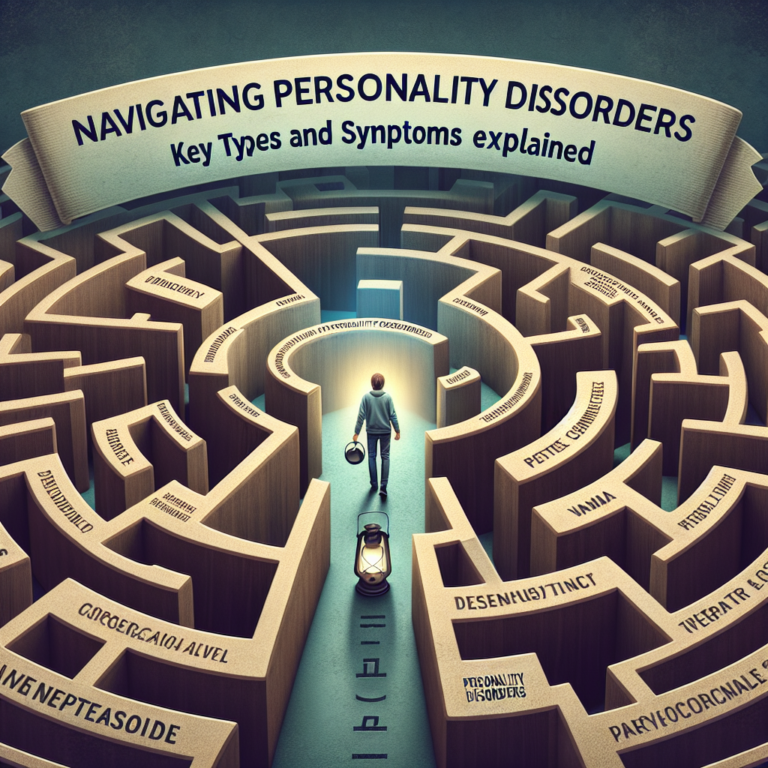Recognizing Burnout: 10 Essential Signs You Can’t Afford to Ignore
Introduction
In today’s fast-paced world, the relentless grind of daily life can lead to an invisible enemy: burnout. This emotional, physical, and mental exhaustion can sap your energy, productivity, and joy, turning once-enjoyable tasks into burdens. Each year, millions of people experience burnout, yet the signs often go unrecognized until it’s too late. It’s crucial to understand that recognizing burnout is not just about acknowledging feelings of fatigue or frustration; it involves understanding a deeper psychological shift that can affect all aspects of life.
This article will dive deeply into the topic of recognizing burnout, outlining 10 essential signs you can’t afford to ignore. By understanding these signs, you empower yourself to take action before burnout takes a significant toll on your health and well-being.
The Reality of Burnout: A Growing Concern
Burnout is not a badge of honor; it’s a serious condition emerging from chronic workplace stress, high demands, and inadequate support. According to a study by the World Health Organization, burnout is a "syndrome conceptualized as resulting from chronic workplace stress that has not been successfully managed." With its increasing prevalence, recognizing burnout is more important than ever.
Case Study: A Corporate Executive’s Journey
Take, for example, Sarah, a 37-year-old corporate executive with a thriving career. To her peers, she seemed invincible, managing teams and spearheading projects while consistently outperforming her targets. However, beneath this seemingly perfect exterior, Sarah was struggling. She battled sleepless nights, irritability, and a growing disconnect from her team, ultimately impacting her performance.
This case exemplifies how recognizing burnout can take a tap on one’s mental state before it becomes debilitating. Understanding her symptoms allowed Sarah to seek help and implement coping strategies that transformed her life.
Recognizing Burnout: 10 Signs You Can’t Afford to Ignore
1. Chronic Fatigue
Sign: Are you constantly tired, regardless of how much sleep you get? Chronic fatigue is one of the first signs of burnout. Even after a full night’s rest, you might find yourself feeling exhausted.
Why It Matters: When your body is in a continuous state of fatigue, it impacts your physical health and emotional state. This fatigue can create a cycle of unproductivity leading to increased stress.
2. Cynicism and Detachment
Sign: Have you noticed a growing sense of cynicism towards your work or colleagues? Detachment can manifest as a lack of interest or apathy about tasks that once excited you.
Why It Matters: This emotional detachment can hinder your ability to engage with your team, leading to a loss of camaraderie and teamwork, which are vital for a healthy work environment.
3. Irritability and Mood Swings
Sign: If you find yourself snapping at colleagues or feeling irritable, this is a clear warning sign. Changes in mood often result from overwhelming stress.
Why It Matters: These mood swings not only affect your relationships at work but can also alienate you from your support systems, driving you deeper into isolation.
4. Decreased Performance and Productivity
Sign: Are you struggling to complete tasks that used to take little effort? A noticeable decline in performance can be a significant indicator of burnout.
Why It Matters: This decline can have long-term repercussions on your career progression and personal satisfaction. Understanding this sign allows for timely intervention.
5. Physical Symptoms
Sign: Are you experiencing unexplained headaches, gastrointestinal issues, or frequent illnesses? These physical manifestations often have psychological roots in stress and burnout.
Why It Matters: Recognizing the connection between physical symptoms and mental fatigue can lead to more effective stress management techniques, such as exercise and mindfulness.
6. Isolation from Friends and Family
Sign: Burnout often causes individuals to withdraw from social interactions, even with loved ones. If you’re avoiding gatherings where you’d typically find joy, this is a crucial sign.
Why It Matters: Social support is vital for resilience in work and life. Recognizing this withdrawal can encourage you to reach out for help before the situation escalates.
7. Feeling of Ineffectiveness
Sign: Do you ever feel that no matter how hard you try, your efforts are unproductive? This feeling of ineffectiveness is a galling sign of burnout.
Why It Matters: Recognizing this sentiment early can help you pivot, seek feedback, and re-evaluate your workload to prevent further emotional depletion.
8. Loss of Interest in Activities
Sign: If you’ve lost interest in hobbies or activities that once brought you joy, this is a significant indicator of burnout.
Why It Matters: A decline in your general enthusiasm for life can indicate a need for mindfulness and introspection, urging you to reconnect with your passions outside of work.
9. Neglecting Self-Care
Sign: Are you ignoring your physical and emotional self-care routines? Neglecting your needs can lead to disastrous consequences for both your mental health and performance.
Why It Matters: Self-care isn’t a luxury; it’s necessary. Recognizing neglect in self-care practices encourages you to reclaim time for yourself.
10. Procrastination and Avoidance
Sign: Are you dodging responsibilities, putting off tasks, or feeling overwhelmed by your workload?
Why It Matters: Procrastination is often a defense mechanism against stress. Recognizing this pattern enables you to tackle tasks in manageable chunks, reducing overwhelm.
Visualizing Burnout: A Table of Symptoms
| Signs | Description | Impact |
|---|---|---|
| Chronic Fatigue | Persistent exhaustion despite adequate sleep | Decreased productivity, increased stress |
| Cynicism and Detachment | Loss of interest in colleagues and work | Weakened team dynamics |
| Irritability and Mood Swings | Increased irritability and emotional instability | Strained relationships |
| Decreased Performance and Productivity | Notable decline in work quality and efficiency | Career progression potential risk |
| Physical Symptoms | Headaches, gastrointestinal problems, frequent sickness | Short and long-term health impacts |
| Isolation from Friends and Family | Avoidance of social interactions | Diminished social support |
| Feeling of Ineffectiveness | Feelings of being unproductive | Low self-esteem and motivation |
| Loss of Interest in Activities | Disengagement from hobbies and joys | Lack of fulfillment |
| Neglecting Self-Care | Ignoring physical and emotional wellness | Increased risk of burnout |
| Procrastination and Avoidance | Avoiding tasks due to feeling overwhelmed | Increased anxiety, work backlog |
Conclusion
Recognizing burnout: 10 signs you can’t afford to ignore is crucial for your health and well-being. Life’s demands can be unrelenting, and the signs often manifest subtly until they become overwhelming. By paying attention to the signals your body and mind send, you can take proactive steps to mitigate these effects before they escalate.
Remember, addressing burnout isn’t about working harder; it’s about working smarter and prioritizing self-care. Whether it’s seeking professional help, re-evaluating your workload, or reconnecting with your passions, you have the power to reclaim control over your life.
Inspire Action
Take a moment today to analyze where you stand on the burnout spectrum. Use the 10 essential signs as your guiding star; awareness is the first step towards recovery. Recognizing burnout early can not only help you prevent further complications but can also lead to a more fulfilling, balanced life.
FAQs
1. What is burnout?
Burnout is a state of emotional, physical, and mental exhaustion caused by prolonged and excessive stress, often manifesting in chronic fatigue, cynicism, and feelings of ineffectiveness.
2. How can I avoid burnout?
To avoid burnout, prioritize self-care, set realistic goals, engage in relaxation techniques, maintain a work-life balance, and seek social support.
3. Is burnout the same as stress?
While stress and burnout are related, they are not the same. Stress primarily involves over-engagement, while burnout results in disengagement; it’s characterized by feelings of helplessness and reduced accomplishment.
4. Can burnout affect my physical health?
Yes, burnout can lead to various physical symptoms, such as headaches, gastrointestinal issues, and a weakened immune system, underlining the importance of recognizing burnout early.
5. When should I seek professional help for burnout?
If you notice severe emotional or physical symptoms of burnout that significantly impact your daily life, work, or relationships, it’s advisable to seek help from a mental health professional.
Recognizing burnout: 10 signs you can’t afford to ignore can be a critical turning point for many. Awareness and action lead to prevention, resilience, and ultimately, a return to a fulfilling and balanced life. Take charge today!











